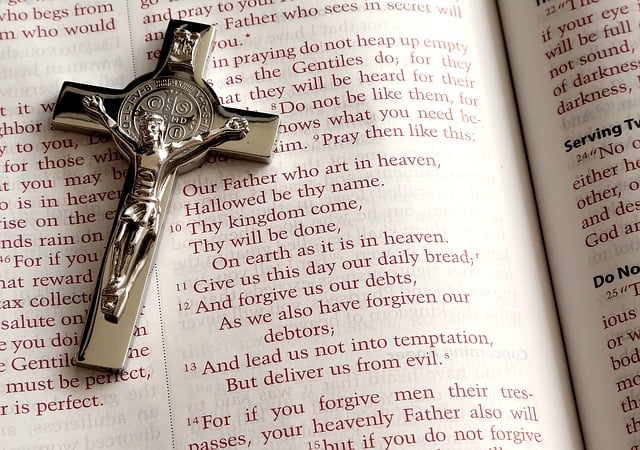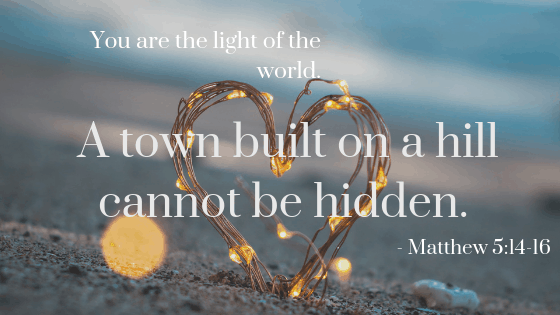What does it mean to be a church?
For many of us, church is a physical building that we go to on Sunday mornings (or maybe Saturday nights or Sunday afternoons). It's an hour of our time that we give back to God by spending time doing what we think we are supposed to be doing: singing hymns, listening to someone preach about Jesus, shaking everyone's hand and going home.
But the word "church" is actually much broader than just the Sunday morning service.
In fact, the word "church" can (and I would argue should) encompass the whole of our lives.

Where does the word "church" come from?
The word "church" is a translation of the Greek word ekklesia, which can be found in the New Testament 114 times.
The word ekklesia has a number of different meanings.
- It refers to the body of Christ spread throughout space and time. All Christians are part of the ekklesia, which is headed up by Christ (Mt. 16:18; Eph. 1:22; 1 Tim. 3:15).
- Ekklesia can refer to God's people within a given region (Acts 9:31).
- It can stand for a local congregation, such as the typical gathering on a Sunday morning (1 Cor. 1:2; Rev. 1:11).
- It can also mean a group of people assembled for worship (1 Cor. 14:34-35). And worship here doesn't have to be singing hymns and listening to a preacher.
In the original Greek, the ek part of ekklesia means "out of", and the klesia part comes from the verb kaleo, which means "to call".
From this, we get a word that basically means "to call out".
While some scholars insist that the meaning of the word ekklesia in the New Testament should be restricted to an assembly of people, the majority agree that there is an element of "calling out" that was originally intended in the word.
What does it mean to be called out?
There are numerous passages in the Bible where we are called to something, where we are called out to participate in a relationship with Jesus Christ.
The promise is for you and your children and for all who are far off—for all whom the Lord our God will call. -Acts 2:39
Brothers and sisters, think of what you were when you were called. Not many of you were wise by human standards; not many were influential; not many were of noble birth. But God chose the foolish,things of the world to shame the wise; God chose the weak things of the world to shame the strong. God chose the lowly things of this world and the despised things—and the things that are not—to nullify the things that are, so that no one may boast before him. - 1 Cor. 1:26-29
As a prisoner for the Lord, then, I urge you to live a life worthy of the calling you have received. - Eph. 4:1
He called you to this through our gospel, that you might share in the glory of our Lord Jesus Christ. - 2 Thess. 2:14
Therefore, my brothers and sisters, make every effort to confirm your calling and election. For if you do these things, you will never stumble. - 2 Pet. 1:10

We are called to use our gifts to glorify God. We are called to share in the inheritance of Christ. We are called to value a relationship with God above worldly riches and success.
But perhaps first and foremost, we are called to have a living relationship with Jesus Christ. This means that we are to give our whole lives over to him to be transformed.
It is not just about attendance on Sunday mornings. It is not just about belonging to a group who gathers in a building and who do the typical "churchy" things.
It is about being transformed into heavenly creatures, into creatures who take up their place in the hierarchy of creation, who follow the will of their Creator in all aspects of their lives. (Or at least who try to follow the will of their Creator, and who pick themselves up and try again when they fail. Which they will.)
We are called to acknowledge a power greater than ourselves, a power that is also a Person, and a Person in whom all the broken pieces of our lives are made whole.
We are called to embody love as an expression of the divine love, to love our neighbours (and even our enemies) as ourselves.
We are called to desire a relationship with God over and above wealth, worldly success, beauty, a fast car and a big house.
This is what it means to be called out as a church. We are to be beacons of light and of love, to be a town built on a hill that shines in the darkness.

This can be done in every context. Church does not have to be just Sunday mornings.
Church can happen anywhere. It can invade the whole of our lives and make them holy.
The secular and the sacred are not two separate realms. We do not leave church the moment we walk out of our places of worship on Sunday mornings.
In fact, our places of worship can be our whole lives.
Coffee shops can be church. Our backyards can be church. Our soccer games and our hikes through the forest can be church.
(Some of our own richest experiences of church, in our family, have been in the times where we gather with friends in the font yard, bring cupcakes to the neighbours, and talk among ourselves about our lives and about Jesus Christ. Or in the times where we gather with others, build with Lego, make messy crafts, share a meal, and talk about Jesus. He is in those moments.)
Church...the ekklesia...the body of Christ spread throughout space and time, expressed in our following God in obedience and love...is wherever we find ourselves.
Ekklesia is the whole of our lives. It is the everyday moments that can be turned into worship by seeking for follow God first.
Of course, I am not arguing that we jettison the sacraments and the traditional assembly model of church, but only that we expand our notions of church to include the whole of our lives, the whole of our lives which can be made into a living sacrament.
